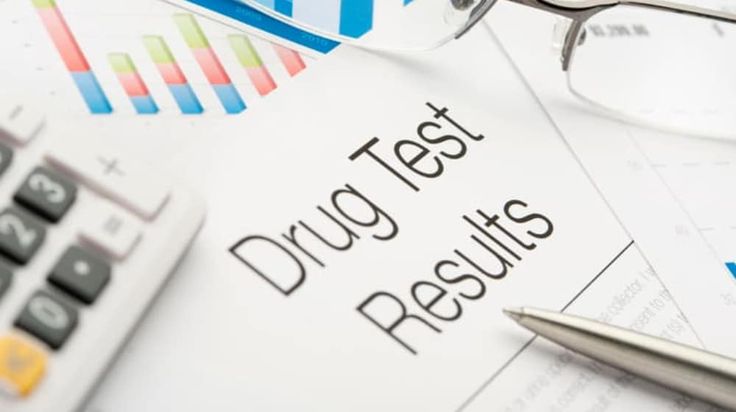How Long Does Weed Stay in Your System Before a Drug Test?

With the increasing acceptance of marijuana use for both medical and recreational purposes, many people wonder how long the drug stays in their system and how it might affect the results of a drug test. Whether you’re preparing for an employment screening, a legal matter, or a medical assessment, understanding the variables involved can help you navigate the process with greater confidence.
How THC is Processed in the Body
The psychoactive component in marijuana, tetrahydrocannabinol (THC), is metabolized and stored differently in the body depending on various factors. THC is absorbed into the bloodstream shortly after consumption, whether it’s smoked, vaped, or ingested. Once in the bloodstream, THC is broken down by the liver into metabolites. These metabolites are what drug tests detect, and they can linger in your system long after the immediate effects of marijuana have worn off.
Factors Influencing THC Detection
The amount of time THC stays in your system varies widely among individuals. Key factors include:
- Frequency of Use:
- Occasional Users: Those who use marijuana infrequently may have THC and its metabolites clear from their systems more quickly.
- Regular Users: Frequent use leads to a buildup of THC in fat cells, prolonging the detection window.
- Body Fat Percentage:
- THC is fat-soluble, meaning it’s stored in fat cells. Individuals with higher body fat percentages may retain THC longer.
- Metabolism:
- A faster metabolism helps the body break down and eliminate THC more quickly.
- Hydration and Physical Activity:
- Staying hydrated and engaging in regular exercise can help flush metabolites out of your system, though the effects are limited.
- Consumption Method:
- Smoking or vaping leads to quicker absorption and elimination compared to edibles, which take longer to metabolize and excrete.
Detection Times by Drug Test Type
The type of drug test administered significantly impacts how long THC can be detected in your system. Here is an overview of detection windows for different tests:
- Urine Tests:
- The most common form of drug testing, urine tests detect THC metabolites, not THC itself.
- Occasional Users: 1-3 days
- Moderate Users: 7-10 days
- Chronic Users: Up to 30 days or more
- Blood Tests:
- Blood tests are less common and typically used to detect recent use.
- Occasional Users: 1-2 days
- Chronic Users: Up to 7 days
- Saliva Tests:
- Often used in roadside tests, saliva testing detects THC rather than its metabolites.
- Occasional Users: Up to 24 hours
- Chronic Users: Up to 72 hours
- Hair Tests:
- Hair follicle testing provides the longest detection window, as THC metabolites are incorporated into hair as it grows.
- All Users: Up to 90 days
Strategies for Reducing THC Detection
If you’re facing an upcoming drug test, there are steps you can take to potentially reduce detection, though results are not guaranteed:
- Hydration:
- Drinking plenty of water may dilute THC metabolites in urine but can also result in a diluted sample, which may require retesting.
- Exercise:
- Physical activity can mobilize fat cells, potentially releasing stored THC. However, exercising too close to a test might temporarily increase THC levels in your bloodstream.
- Detox Products:
- Numerous detox kits and drinks claim to cleanse THC from your system, but their effectiveness varies widely and may not work for everyone.
- Time:
- The only foolproof way to pass a drug test is to allow enough time for THC to naturally clear from your system.
Legal Implications of Failing a Drug Test
The legal ramifications of failing a drug test depend on the context. For instance:
- Employment: Many employers maintain zero-tolerance drug policies. Failing a drug test could lead to disciplinary action, job loss, or difficulty securing future employment.
- Legal Matters: Positive drug tests can have significant consequences in cases involving child custody, DUI charges, or probation requirements.
- Sports and Athletics: Athletes subject to drug testing may face suspensions or disqualification for THC detection.
Medical Marijuana and Drug Testing
Even if you’re using marijuana legally under a medical prescription, you may still face challenges with drug testing. Employers and legal entities often do not differentiate between medical and recreational use, particularly in states where marijuana remains illegal at the federal level.
Conclusion
Understanding how long marijuana stays in your system is crucial for avoiding potential complications related to drug testing. Various factors, including usage patterns, body composition, and the type of test administered, play a role in determining detection windows. While detox methods may provide temporary relief, they are not guaranteed to work, and time remains the most reliable way to ensure a clean result.
If you’re facing legal challenges related to drug use or a failed drug test, Thomas & Ahnell, LLC can provide the support and guidance you need. Our experienced legal team is well-versed in defending clients in cases involving employment disputes, custody matters, and criminal charges. Contact us today to discuss your situation and learn how we can help protect your rights.
Do you have further questions or concerns? Call us or contact the attorneys at Thomas & Ahnell, LLC, and we will be happy to help.

